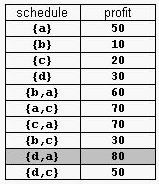- java netty长连接_用netty实现长连接
大笨妞
javanetty长连接
示例代码1:https://github.com/howdyli/netty示例代码2:http://my.oschina.net/bv10000/blog/399388iosasyncsocket示例代码:http://www.superqq.com/blog/2015/04/03/ioskai-fa-zhi-asyncsocketshi-yong-jiao-cheng/长连接服务文章:http
- JavaSwing游戏开发之Camera原理
Rverdoser
ios
importjavax.swing.*;importjava.awt.*;publicclassCameraExampleextendsJPanel{privatestaticfinallongserialVersionUID=1L;privateintxOffset=0;publicCameraExample(){//使用双缓冲技术避免闪烁super(true);}@Overrideprotec
- NVIDIA发布企业级硬件 AI 参考架构
深度学习服务器
深度学习架构服务器pythonplotly
NVIDIA发布企业级硬件AI参考架构NVIDIA英伟达在OCP峰会后发布了许多AI参考架构,#GPU服务器#供应商与Nvidia合作开发了大规模部署NvidiaAI硬件所需的基础设施硬件,近日Nvidia宣布企业级客户构建的参考架构。NVIDIADGXSuperPOD架构,该架构完全使用Nvidia服务器和网络技术构建。从设计到部署进行优化新发布的参考架构(RA)产品适用于部署范围为32到102
- 三星note3_lineageOS16刷SuperSu开启root权限
SabreWulf2020
AndroidlineageOS16三星note3rootlineageOSroot
前面一篇文章写了note3刷lineageOS16,此处记录一下root过程。LineageOSrom在开发者选项中内置了root访问设置,您只需为adb和应用程序启用它,这非常简单。要启用root或rootLineageOS,请遵循以下步骤。一、如何root1.手机已刷入TWRP2.下载SuperSu.zip,并放置到手机内存中3.同时按下手机向上音量键重启手机,进入恢复模式4.点击手机中的"I
- text2sql、nl2sql框架总结
fragrans
机器学习ainlp语言模型
DB-GPTDB-GPT·语雀VannaDAIL-SQLdata-copilotSuperSonic:腾讯音乐开源ChatBI平台,开启Text-to-SQL全新体验
- Pytorch实现猫狗分类
NoKnowovo
Pythonpytorch分类人工智能
在进行编码之前,确保已经安装好Pytorch以及相关依赖环境模型定义构建构建一个较为简单的卷积神经网络模型#定义神经网络模型classCatDogClassifier(nn.Module):def__init__(self):super(CatDogClassifier,self).__init__()self.conv1=nn.Conv2d(3,16,kernel_size=5,stride=1
- 使用Supervisor在Ubuntu中实现后台自启动服务
浪浪山小白兔
ubuntu服务器运维
在Ubuntu系统中,Supervisor是一个非常实用的进程管理工具,它可以让你的应用程序在后台运行,并且在系统启动时自动启动这些应用程序。下面,我将详细介绍如何在Ubuntu中使用Supervisor来实现后台自启动服务,并以一个具体的例子来演示整个过程。一、安装Supervisor首先,我们需要在Ubuntu系统中安装Supervisor。打开终端,输入以下命令:sudoaptupdates
- 【Docker】Supervisor 实现单容器运行多服务进程
行者Sun1989
DockerDocker容器Supervisor
本文内容均来自个人笔记并重新梳理,如有错误欢迎指正!如果对您有帮助,烦请点赞、关注、转发、订阅专栏!专栏订阅入口|精选文章|Kubernetes|Docker|Linux|羊毛资源|工具推荐|往期精彩文章【Docker】(全网首发)KylinV10下MySQL容器内存占用异常的解决方法【Docker】(全网首发)KylinV10下MySQL容器内存占用异常的解决方法(续)【K8s】专题十五(6):
- @SuperBuilder
你这个代码我看不懂
Java开发开发语言java
@SuperBuilder的用法@SuperBuilder是Lombok提供的一个注解,用于生成一个具有父类和子类构建器的构建器模式。它可以让你更方便地创建复杂对象,尤其是在继承层次结构中。下面是一个简单的例子来展示它的用法:示例代码假设我们有一个父类Parent和一个子类Child:importlombok.Getter;importlombok.experimental.SuperBuilde
- Java Throwable
tony_elizabeth
JavaJava
Java的Exception处理机制中,基类是:throwable,然后exception和error继承自throwable.RuntimeException继承自Exception.[b]throw的runtimeException和error不需要catchthrow的throwable和checkedException需要catch[/b]自定义的Exception需要实现:super()
- Java构建器的陷阱:@SuperBuilder 和 @Builder 的坑及代码演示
魔道不误砍柴功
Java使用与案例分享java开发语言Lombok构造器
文章目录@Builder和@SuperBuilder的区别坑点一:继承结构中的使用坑点二:无参构造函数的缺失坑点三:与其他注解的兼容性问题坑点四:@SuperBuilder与@NoArgsConstructor的冲突结语推荐阅读文章在Java编程的广阔天地中,Lombok库以其简洁的代码风格和强大的功能赢得了开发者的青睐。特别是@Builder和@SuperBuilder注解,它们极大地简化了对象
- Cartographer_01: 使用CLion配置Cartographer_Superbuild
鬼马汤圆
cartographerubuntudebug
使用CLion配置Cartographer_Superbuild笔者计算机新手,尝试使用CLiondebugCartographer,其间遇到多方困难,最后使用github上一位大佬写的Cartographer_Superbuild成功debug。特此记录,以防忘记。首先,配置,操作系统:Ubuntu18.04LTSRos:MelodicIDE:CLion2020.2.4debug代码:Carto
- Ghostty 终端默认快捷键列表
编辑器vimgo前端程序员
文章目录Ghostty终端默认快捷键列表基本操作分屏操作光标和选择操作其他操作物理按键绑定特殊按键说明注意事项结语Ghostty提供了丰富的默认快捷键,用户可以通过这些快捷键快速执行各种操作。以下是Ghostty的默认快捷键列表,这些快捷键可以通过keybind配置进行自定义。Ghostty终端默认快捷键列表基本操作super+page_up:向上滚动页面。super+page_down:向下滚动
- python(类和对象之类函数和静态函数)
huo_1214
类函数和静态函数#-*-coding:utf-8-*-#类函数和静态函数classPeople(object):#类变量total=0def__init__(self,name,age):#调用父类的初始化函数super(People,self).__init__()#初始化当前类对象的一些属性self.name=nameself.age=age#对象函数,只能由对象调用defeat(self):
- 机器学习与深度学习间关系与区别
ℒℴѵℯ心·动ꦿ໊ོ꫞
人工智能学习深度学习python
一、机器学习概述定义机器学习(MachineLearning,ML)是一种通过数据驱动的方法,利用统计学和计算算法来训练模型,使计算机能够从数据中学习并自动进行预测或决策。机器学习通过分析大量数据样本,识别其中的模式和规律,从而对新的数据进行判断。其核心在于通过训练过程,让模型不断优化和提升其预测准确性。主要类型1.监督学习(SupervisedLearning)监督学习是指在训练数据集中包含输入
- matlab mle 优化,MLE+: Matlab Toolbox for Integrated Modeling, Control and Optimization for Buildings...
Simon Zhong
matlabmle优化
摘要:FollowingunilateralopticnervesectioninadultPVGhoodedrat,theaxonguidancecueephrin-A2isup-regulatedincaudalbutnotrostralsuperiorcolliculus(SC)andtheEphA5receptorisdown-regulatedinaxotomisedretinalgan
- [Swift]LeetCode943. 最短超级串 | Find the Shortest Superstring
黄小二哥
swift
★★★★★★★★★★★★★★★★★★★★★★★★★★★★★★★★★★★★★★★★➤微信公众号:山青咏芝(shanqingyongzhi)➤博客园地址:山青咏芝(https://www.cnblogs.com/strengthen/)➤GitHub地址:https://github.com/strengthen/LeetCode➤原文地址:https://www.cnblogs.com/streng
- 探索创新科技: Lite-Mono - 简约高效的小型化Mono框架
杭律沛Meris
探索创新科技:Lite-Mono-简约高效的小型化Mono框架Lite-Mono[CVPR2023]Lite-Mono:ALightweightCNNandTransformerArchitectureforSelf-SupervisedMonocularDepthEstimation项目地址:https://gitcode.com/gh_mirrors/li/Lite-Mono如果你在寻找一个轻
- ResNet的半监督和半弱监督模型
Valar_Morghulis
Billion-scalesemi-supervisedlearningforimageclassificationhttps://arxiv.org/pdf/1905.00546.pdfhttps://github.com/facebookresearch/semi-supervised-ImageNet1K-models/权重在timm中也有:https://hub.fastgit.org/r
- CesiumJS+SuperMap3D.js混用实现可视域分析 S3M图层加载 裁剪区域绘制
SteveJi666
WebGLcesiumEarthSDKSuperMap3djavascript前端arcgis
版本简介:cesium:1.99;Supermap3D:SuperMapiClientJavaScript11i(2023);官方下载文档链家:SuperMap技术资源中心|为您提供全面的在线技术服务示例参考:support.supermap.com.cn:8090/webgl/Cesium/examples/webgl/examples.html#analysissupport.supermap
- vue3+ts+supermap icilent3d for cesium功能集合
用你的胜利博我一笑吧
arcgis
会把各项功能链接放在这1.vue3配置supermapicilent3dforcesiumvue3中使用supermapicilent3dforcesium_npm引入supermapgis-CSDN博客2.功能2.1加载天地图,加载地形,夸大地形supermapicilent3dforcesium加载地形并夸大地形-CSDN博客2.2加载雨雪天气,并添加白色的材质2.3调整图层高度,透明度等信息
- CesiumJS+SuperMap3D.js混用实现通视分析
SteveJi666
WebGLcesiumEarthSDKSuperMap3djavascript前端arcgis
版本简介:cesium:1.99;Supermap3D:SuperMapiClientJavaScript11i(2023);官方下载文档链家:SuperMap技术资源中心|为您提供全面的在线技术服务示例参考:support.supermap.com.cn:8090/webgl/Cesium/examples/webgl/examples.html#analysissupport.supermap
- Superset二次开发之源码DependencyList.tsx 分析
aimmon
Superset二次开发SupersetBI二次开发typescript前端
功能点路径superset-frontend\src\dashboard\components\nativeFilters\FiltersConfigModal\FiltersConfigForm\DependencyList.tsx/***LicensedtotheApacheSoftwareFoundation(ASF)underone*ormorecontributorlicenseagre
- Android界面特效全汇总
小飞鹤
Android开发详解android
(一)Activity页面切换的效果Android2.0之后有了overridePendingTransition(),其中里面两个参数,一个是前一个activity的退出两一个activity的进入,Java代码1.@OverridepublicvoidonCreate(BundlesavedInstanceState){2.super.onCreate(savedInstanceState);
- 面向对象编程03:封装、继承、多态
Clap of thunder
Java从零学起java封装多态继承面向对象编程
面向对象编程03:封装、继承、多态文章目录面向对象编程03:封装、继承、多态封装继承object类supersuper注意点:`super`VS`this`:方法重写多态多态的注意事项:instanceof关键字父类与子类之间的类型转换封装该露的露、该藏的藏设计程序要追求“高内聚、低耦合”。高内聚就是类的内部数据操作细节由自己完成,不允许外部干涉;低耦合:仅仅暴露少量的方法给外部使用。封装(数据的
- Java基础全程学习笔记(二)
网路侠客
java学习笔记开发语言
第06章:面向对象-基础#面向对象内容的三条主线:>类及类的内部成员:属性、方法、构造器;代码块、内部类>面向对象的三大特征:封装性、继承性、多态性>其它关键字的使用:package、import、this、super、static、final、abstract、interface等1.理解:面向过程vs面向对象#简单的语言描述二者的区别>面向过程:以`函数`为组织单位。是一种“`执行者思维`”,
- java使用抽象类的注意事项
Java__攻城狮
java基础面试题java开发语言
1抽象类不能进行实例化因为如果抽象类允许实例化,就可以调用内部没有方法体的抽象方法。这显然不合理。2抽象类存在构造方法可以交给子类用super进行访问。(其实抽象类除了不能创建对象,其他与普通类没有区别)。3抽象类可以存在普通方法。主要是让子类继承使用。4抽象类的子类子类要么重写父类的抽象方法,要么子类字迹也变成一个抽象。
- Core Foundation 对象的内存管理
言己言
底层的CoreFoundation对象,大多数以xxxCreateWithxxx这样的方式创建,例如:#import"TestViewController.h"#import@interfaceTestViewController()@end@implementationTestViewController-(void)viewDidLoad{[superviewDidLoad];//创建一个CF
- python pyqt5 设置控件随窗体拉伸
SkTj
2#--coding:utf-8--'''【简介】布局中用到的addStretch函数例子'''fromPyQt5.QtWidgetsimportQApplication,QWidget,QVBoxLayout,QHBoxLayout,QPushButtonimportsysclassWindowDemo(QWidget):definit(self):super().init()btn1=QPus
- TypeError: __init__() got an unexpected keyword argument ‘name‘
PinkAir
debugpythonleetcode
WhenIwroteacustomclassofKeras,Imetthiserror.Solution:changefromthesnippetbelowclasscustconv2d(keras.layers.Layer):def__init__(self):super(custconv2d,self).__init__()self.k=self.add_weight(shape=(1,),i
- log4j对象改变日志级别
3213213333332132
javalog4jlevellog4j对象名称日志级别
log4j对象改变日志级别可批量的改变所有级别,或是根据条件改变日志级别。
log4j配置文件:
log4j.rootLogger=ERROR,FILE,CONSOLE,EXECPTION
#log4j.appender.FILE=org.apache.log4j.RollingFileAppender
log4j.appender.FILE=org.apache.l
- elk+redis 搭建nginx日志分析平台
ronin47
elasticsearchkibanalogstash
elk+redis 搭建nginx日志分析平台
logstash,elasticsearch,kibana 怎么进行nginx的日志分析呢?首先,架构方面,nginx是有日志文件的,它的每个请求的状态等都有日志文件进行记录。其次,需要有个队 列,redis的l
- Yii2设置时区
dcj3sjt126com
PHPtimezoneyii2
时区这东西,在开发的时候,你说重要吧,也还好,毕竟没它也能正常运行,你说不重要吧,那就纠结了。特别是linux系统,都TMD差上几小时,你能不痛苦吗?win还好一点。有一些常规方法,是大家目前都在采用的1、php.ini中的设置,这个就不谈了,2、程序中公用文件里设置,date_default_timezone_set一下时区3、或者。。。自己写时间处理函数,在遇到时间的时候,用这个函数处理(比较
- js实现前台动态添加文本框,后台获取文本框内容
171815164
文本框
<%@ page language="java" import="java.util.*" pageEncoding="UTF-8"%>
<!DOCTYPE html PUBLIC "-//W3C//DTD XHTML 1.0 Transitional//EN" "http://w
- 持续集成工具
g21121
持续集成
持续集成是什么?我们为什么需要持续集成?持续集成带来的好处是什么?什么样的项目需要持续集成?... 持续集成(Continuous integration ,简称CI),所谓集成可以理解为将互相依赖的工程或模块合并成一个能单独运行
- 数据结构哈希表(hash)总结
永夜-极光
数据结构
1.什么是hash
来源于百度百科:
Hash,一般翻译做“散列”,也有直接音译为“哈希”的,就是把任意长度的输入,通过散列算法,变换成固定长度的输出,该输出就是散列值。这种转换是一种压缩映射,也就是,散列值的空间通常远小于输入的空间,不同的输入可能会散列成相同的输出,所以不可能从散列值来唯一的确定输入值。简单的说就是一种将任意长度的消息压缩到某一固定长度的消息摘要的函数。
- 乱七八糟
程序员是怎么炼成的
eclipse中的jvm字节码查看插件地址:
http://andrei.gmxhome.de/eclipse/
安装该地址的outline 插件 后重启,打开window下的view下的bytecode视图
http://andrei.gmxhome.de/eclipse/
jvm博客:
http://yunshen0909.iteye.com/blog/2
- 职场人伤害了“上司” 怎样弥补
aijuans
职场
由于工作中的失误,或者平时不注意自己的言行“伤害”、“得罪”了自己的上司,怎么办呢?
在职业生涯中这种问题尽量不要发生。下面提供了一些解决问题的建议:
一、利用一些轻松的场合表示对他的尊重
即使是开明的上司也很注重自己的权威,都希望得到下属的尊重,所以当你与上司冲突后,最好让不愉快成为过去,你不妨在一些轻松的场合,比如会餐、联谊活动等,向上司问个好,敬下酒,表示你对对方的尊重,
- 深入浅出url编码
antonyup_2006
应用服务器浏览器servletweblogicIE
出处:http://blog.csdn.net/yzhz 杨争
http://blog.csdn.net/yzhz/archive/2007/07/03/1676796.aspx
一、问题:
编码问题是JAVA初学者在web开发过程中经常会遇到问题,网上也有大量相关的
- 建表后创建表的约束关系和增加表的字段
百合不是茶
标的约束关系增加表的字段
下面所有的操作都是在表建立后操作的,主要目的就是熟悉sql的约束,约束语句的万能公式
1,增加字段(student表中增加 姓名字段)
alter table 增加字段的表名 add 增加的字段名 增加字段的数据类型
alter table student add name varchar2(10);
&nb
- Uploadify 3.2 参数属性、事件、方法函数详解
bijian1013
JavaScriptuploadify
一.属性
属性名称
默认值
说明
auto
true
设置为true当选择文件后就直接上传了,为false需要点击上传按钮才上传。
buttonClass
”
按钮样式
buttonCursor
‘hand’
鼠标指针悬停在按钮上的样子
buttonImage
null
浏览按钮的图片的路
- 精通Oracle10编程SQL(16)使用LOB对象
bijian1013
oracle数据库plsql
/*
*使用LOB对象
*/
--LOB(Large Object)是专门用于处理大对象的一种数据类型,其所存放的数据长度可以达到4G字节
--CLOB/NCLOB用于存储大批量字符数据,BLOB用于存储大批量二进制数据,而BFILE则存储着指向OS文件的指针
/*
*综合实例
*/
--建立表空间
--#指定区尺寸为128k,如不指定,区尺寸默认为64k
CR
- 【Resin一】Resin服务器部署web应用
bit1129
resin
工作中,在Resin服务器上部署web应用,通常有如下三种方式:
配置多个web-app
配置多个http id
为每个应用配置一个propeties、xml以及sh脚本文件
配置多个web-app
在resin.xml中,可以为一个host配置多个web-app
<cluster id="app&q
- red5简介及基础知识
白糖_
基础
简介
Red5的主要功能和Macromedia公司的FMS类似,提供基于Flash的流媒体服务的一款基于Java的开源流媒体服务器。它由Java语言编写,使用RTMP作为流媒体传输协议,这与FMS完全兼容。它具有流化FLV、MP3文件,实时录制客户端流为FLV文件,共享对象,实时视频播放、Remoting等功能。用Red5替换FMS后,客户端不用更改可正
- angular.fromJson
boyitech
AngularJSAngularJS 官方APIAngularJS API
angular.fromJson 描述: 把Json字符串转为对象 使用方法: angular.fromJson(json); 参数详解: Param Type Details json
string
JSON 字符串 返回值: 对象, 数组, 字符串 或者是一个数字 示例:
<!DOCTYPE HTML>
<h
- java-颠倒一个句子中的词的顺序。比如: I am a student颠倒后变成:student a am I
bylijinnan
java
public class ReverseWords {
/**
* 题目:颠倒一个句子中的词的顺序。比如: I am a student颠倒后变成:student a am I.词以空格分隔。
* 要求:
* 1.实现速度最快,移动最少
* 2.不能使用String的方法如split,indexOf等等。
* 解答:两次翻转。
*/
publ
- web实时通讯
Chen.H
Web浏览器socket脚本
关于web实时通讯,做一些监控软件。
由web服务器组件从消息服务器订阅实时数据,并建立消息服务器到所述web服务器之间的连接,web浏览器利用从所述web服务器下载到web页面的客户端代理与web服务器组件之间的socket连接,建立web浏览器与web服务器之间的持久连接;利用所述客户端代理与web浏览器页面之间的信息交互实现页面本地更新,建立一条从消息服务器到web浏览器页面之间的消息通路
- [基因与生物]远古生物的基因可以嫁接到现代生物基因组中吗?
comsci
生物
大家仅仅把我说的事情当作一个IT行业的笑话来听吧..没有其它更多的意思
如果我们把大自然看成是一位伟大的程序员,专门为地球上的生态系统编制基因代码,并创造出各种不同的生物来,那么6500万年前的程序员开发的代码,是否兼容现代派的程序员的代码和架构呢?
- oracle 外部表
daizj
oracle外部表external tables
oracle外部表是只允许只读访问,不能进行DML操作,不能创建索引,可以对外部表进行的查询,连接,排序,创建视图和创建同义词操作。
you can select, join, or sort external table data. You can also create views and synonyms for external tables. Ho
- aop相关的概念及配置
daysinsun
AOP
切面(Aspect):
通常在目标方法执行前后需要执行的方法(如事务、日志、权限),这些方法我们封装到一个类里面,这个类就叫切面。
连接点(joinpoint)
spring里面的连接点指需要切入的方法,通常这个joinpoint可以作为一个参数传入到切面的方法里面(非常有用的一个东西)。
通知(Advice)
通知就是切面里面方法的具体实现,分为前置、后置、最终、异常环
- 初一上学期难记忆单词背诵第二课
dcj3sjt126com
englishword
middle 中间的,中级的
well 喔,那么;好吧
phone 电话,电话机
policeman 警察
ask 问
take 拿到;带到
address 地址
glad 高兴的,乐意的
why 为什么
China 中国
family 家庭
grandmother (外)祖母
grandfather (外)祖父
wife 妻子
husband 丈夫
da
- Linux日志分析常用命令
dcj3sjt126com
linuxlog
1.查看文件内容
cat
-n 显示行号 2.分页显示
more
Enter 显示下一行
空格 显示下一页
F 显示下一屏
B 显示上一屏
less
/get 查询"get"字符串并高亮显示 3.显示文件尾
tail
-f 不退出持续显示
-n 显示文件最后n行 4.显示头文件
head
-n 显示文件开始n行 5.内容排序
sort
-n 按照
- JSONP 原理分析
fantasy2005
JavaScriptjsonpjsonp 跨域
转自 http://www.nowamagic.net/librarys/veda/detail/224
JavaScript是一种在Web开发中经常使用的前端动态脚本技术。在JavaScript中,有一个很重要的安全性限制,被称为“Same-Origin Policy”(同源策略)。这一策略对于JavaScript代码能够访问的页面内容做了很重要的限制,即JavaScript只能访问与包含它的
- 使用connect by进行级联查询
234390216
oracle查询父子Connect by级联
使用connect by进行级联查询
connect by可以用于级联查询,常用于对具有树状结构的记录查询某一节点的所有子孙节点或所有祖辈节点。
来看一个示例,现假设我们拥有一个菜单表t_menu,其中只有三个字段:
- 一个不错的能将HTML表格导出为excel,pdf等的jquery插件
jackyrong
jquery插件
发现一个老外写的不错的jquery插件,可以实现将HTML
表格导出为excel,pdf等格式,
地址在:
https://github.com/kayalshri/
下面看个例子,实现导出表格到excel,pdf
<html>
<head>
<title>Export html table to excel an
- UI设计中我们为什么需要设计动效
lampcy
UIUI设计
关于Unity3D中的Shader的知识
首先先解释下Unity3D的Shader,Unity里面的Shaders是使用一种叫ShaderLab的语言编写的,它同微软的FX文件或者NVIDIA的CgFX有些类似。传统意义上的vertex shader和pixel shader还是使用标准的Cg/HLSL 编程语言编写的。因此Unity文档里面的Shader,都是指用ShaderLab编写的代码,
- 如何禁止页面缓存
nannan408
htmljspcache
禁止页面使用缓存~
------------------------------------------------
jsp:页面no cache:
response.setHeader("Pragma","No-cache");
response.setHeader("Cache-Control","no-cach
- 以代码的方式管理quartz定时任务的暂停、重启、删除、添加等
Everyday都不同
定时任务管理spring-quartz
【前言】在项目的管理功能中,对定时任务的管理有时会很常见。因为我们不能指望只在配置文件中配置好定时任务就行了,因为如果要控制定时任务的 “暂停” 呢?暂停之后又要在某个时间点 “重启” 该定时任务呢?或者说直接 “删除” 该定时任务呢?要改变某定时任务的触发时间呢? “添加” 一个定时任务对于系统的使用者而言,是不太现实的,因为一个定时任务的处理逻辑他是不
- EXT实例
tntxia
ext
(1) 增加一个按钮
JSP:
<%@ page language="java" import="java.util.*" pageEncoding="UTF-8"%>
<%
String path = request.getContextPath();
Stri
- 数学学习在计算机研究领域的作用和重要性
xjnine
Math
最近一直有师弟师妹和朋友问我数学和研究的关系,研一要去学什么数学课。毕竟在清华,衡量一个研究生最重要的指标之一就是paper,而没有数学,是肯定上不了世界顶级的期刊和会议的,这在计算机学界尤其重要!你会发现,不论哪个领域有价值的东西,都一定离不开数学!在这样一个信息时代,当google已经让世界没有秘密的时候,一种卓越的数学思维,绝对可以成为你的核心竞争力. 无奈本人实在见地



